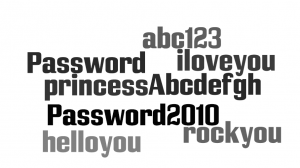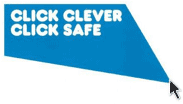Earlier this year the Scottish Government announced the launch of an action plan and marketing campaign to improve the safety of children on the internet and prevent problems such as cyber bullying, internet fraud and online grooming, the action plan can be found here.
Part of the campaign included an ‘Internet Safety Competition’ which ran in conjunction with Young Scot and Learning and Teaching Scotland in order to find new and original resources for use in Scotland.
The Highland Council’s entry from their Education, Culture and Sport Service was chosen as overall winner in its category and will now be used as a national resource. The winning resource is a play which toured Highland secondary schools in February. ‘The Cyber Room’ performance shows the developments after four 15 year-olds meeting in an internet chat-room.
The development of the play was facilitated by Highland Council, Education, Culture and Sport Service staff. The judges were particularly impressed by how the content and tone of the performance had been developed; the number of children who had seen the play already; and their positive reaction to such challenging material.
Key messages that the play aims to convey are: the importance of using the internet responsibly; to encourage pupils think more carefully about they are talking to online; and to know where they can report someone whose behaviour online is causing them concern.
Using drama as a tool in communicating and exploring sensitive issues has proven very successful for past initiatives in Highland (such as smoking awareness, mental health and self harm awareness and careers opportunities to name a few) and as internet safety is such a pertinent and key issue for young people at the moment the Highland Council chose to use the powerful arts medium to look at issues around internet safety and cyber bullying.
Eden Court’s Education Department was approached to discuss the possibilities of developing a bespoke piece of theatre to look at the internet safety and cyber bullying, subsequently, ‘The Cyber Room’ idea was developed.
The creation of the script was informed by Internet Safety training delivered by Louise Jones, Health Promoting Schools Manager. The training was an essential part of the script development as it ensured that the piece enhanced and complimented the wider messages and training being communicated and delivered in schools for Internet Safety.
The play was offered to all 29 secondary schools in Highland. 27 schools took the play which was shown to S1 and S2 pupils (S3 to S6 pupils saw the piece in a few schools). A total of 30 performances took place with over 2,400 pupils benefiting from the performance and workshop.
An extensive evaluation took place, with all audience members and teachers asked to complete a questionnaire at the end of each performance
Pupils said that they had learned:
- “Not to talk to strangers online and don’t give away any personal details.”
- “That there’s a lot of report buttons on different sites to keep you safe.”
- “…about cyber bullying and how to avoid it.”
- “…how serious bullying can get.”
- “to tell somebody truthfully if you are getting bullied.”
Teachers commented that they “…valued this as a parent and think other parents should see it”; and learned “…not to take young people’s ability to be responsible for granted”.
When asked if they thought that using drama was an effective way of communicating about issues for young people, pupils agreed:
- “Yes, it’s a more interesting way to learn.”
- “…because it is better than just saying don’t do this, don’t do that.”
- because “…instead of hearing about it you can see it.”
Teachers added:
- “All the issues are very real for some of our pupils and the play will provide a good basis for further discussion.”
- “Drama is hard hitting and brings home to pupils the realities of what can happen on line. Far better than us boring them with dos and don’ts.”
- “Very powerful dramatisation of an emotive issue and one we constantly have to deal with in school.”
The Highland Council’s Youth Convener Magnus Monahan, has been part of the development of the strategy for all Internet Safety and Responsible Use work in Highland and fully supported the application for the Internet Safety Competition, He said: “I think the play is a very powerful way of getting across the message about the impact your online activities can have.”
Councillor Bill Fernie, Chairman of The Highland Council’s Education Culture and Sport Service Committee said: “I’m delighted to see the innovative ways our staff seek to educate young people on keeping safe online being recognised at a national level. This is a perfect example of education, leisure and arts working effectively together to create new and exciting resources. Congratulations to all involved.”
For further information please contact: Louise Jones Health Promoting Schools Manager or Lynn Johnson, Arts Links Officer tel: (01463) 702000.






